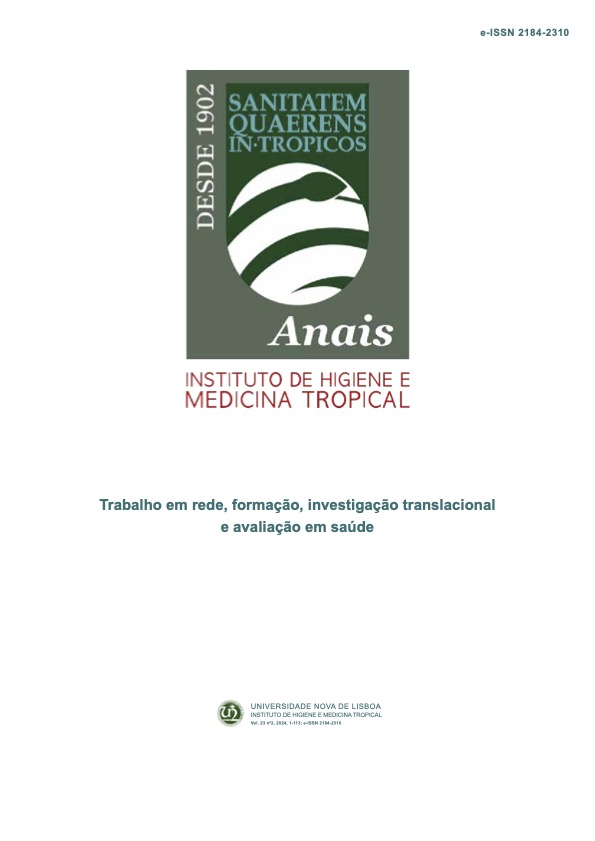As redes sociotécnicas em avaliação em saúde e a translação do conhecimento
Resumo
Aplicar o conhecimento científico na prática é um desafio contínuo na área da saúde. Paralelamente, o campo da avaliação em saúde tem se concentrado em compreender em como implementar e desenvolver intervenções complexas. Neste contexto, a Teoria do Ator-Rede tem oferecido contribuições significativas para estes estudos relacionados. Este artigo objetiva apresentar elementos centrais da Teoria do Ator-Rede, refletir sobre suas contribuições para a avaliação e discutir seu papel na translação do conhecimento em ação. Ao explorar essa abordagem teórica, busca-se fornecer insights e perspectivas que possam enriquecer a prática de avaliação em saúde e promover uma implementação mais efetiva do conhecimento científico. Pautada na avaliação baseada em teoria e na emergência de avaliações de quinta geração, propõe-se a Avaliação Baseada na Teoria do Ator-Rede, para explicar e permitir investigar intervenções do campo da saúde, mapeando a sua dinâmica e acompanhando a sua trajetória. Compreende-se que essa abordagem potencializará a translação do conhecimento, apoiando os tomadores de decisão, melhorando as práticas nos serviços, e consequentemente melhorando a saúde das populações.
Downloads
Referências
Oliveira SRA, Figueiró AC. Translação do conhecimento e avaliação em saúde: conceitos e perspectivas. Em: Cruz M, Craveiro I, Kabad J,Vitorino S, editores. Avaliação em saúde, Redes sociotécnicas e translação do conhecimento. São Paulo: Hucitec Editora; 2022.p. 23-40
Hawe P. Lessons from complex interventions to improve health. Annu Rev Publ Health. 2015, 36:307–323
Callon M. Some elements of a sociology of translation: domestication of the scallops and the fishermen of St Brieuc Bay. Em: Law J, editor. Power, action and belief: a new sociology of knowledge?. London: Routledge; 1986. p. 196– 223. [Consultado em 25 de julho de 2017]. Disponível em: http://citeseerx. ist.psu.edu/viewdoc/ download?doi=10.1.1.614.3046&rep=rep1&type=pdf
Latour B,Woolgar S.A vida de laboratório: a produção dos fatos científicos. Rio de Janeiro: Relume Dumara; 1997
Callon M, Latour B. Le grand Léviathan a’apprivoise-t-il? Em: Akrich M, Callon M, Latour B, editores. Sociologie de la traduction: textes fondateurs. Paris: Mines Paris, les Presses; 2006.p. 11-32
Law J. Notes on the Theory of the Actor Network: Ordering, strategy and heterogeneity. Systems Practice. 1992, 5: 379–393
Law J, Mol A. Complexities - social studies of knowledge practices. Durham: Duke University Press; 2002
Coryn, Chris LS, Noakes LA,Westine CD, Schröter DC.A systematic review of theory-driven evaluation practice from 1990 to 2009. American journal of Evaluation. 2011, 32.2: 199-226
Brousselle A, Buregeya J-M. Theory-based evaluations: Framing the existence of a new theory in evaluation and the rise of the 5th generation. Evaluation. 2018, 24.2: 153-168
Cresswell KM, Worth A, Sheikh A. Actor-Network Theory and its role in understanding the implementation of information technology developments in healthcare. BMC Med Inform Decis Mak. 2010, 10 (67): 1-11
Cresswell K, Worth A, Sheikh A. Implementing and adopting electronic health record systems: How actor-network theory can support evaluation. Clinical governance: An International Journal. 2011, 16 (4): 320-336
Figueiró AC, Santos MA de, Cruz MM da, Ubarana J, Hartz Z. Implementação de um sistema de monitoramento e avaliação de âmbito federal: o caso do e-Car no Departamento de Monitoramento e Avaliação do Sistema Único de Saúde (SUS). Anais do Instituto de Higiene e Medicina Tropical. 2017, 16: 65-74
Oliveira SRA. Redes sociotécnicas e translação do conhecimento. Anais do Instituto de Higiene e Medicina Tropical. 2018, 17: 97-104
Silva JC, Alves CKA, Oliveira SRA. Cartão de Evento-Crítico: ferramenta analítica para translação do conhecimento. Saúde em Debate. 2019, 43: 10-18
Bisset S, Potvin L. Expanding our conceptualization of program implementation: lessons from the genealogy of a school-based nutrition program. Health education research. 2007, 22 (5): 737–746
McLean C, Hassard J. Symmetrical Absence/Symmetrical Absurdity: Critical Notes on the production of Actor Network Theory. Journal of Management Studies. 2004, 41: 493-519. 10.1111/j.1467-6486.2004.00442.x
Levesque JF, Harris M, Russell G. Patient-centred access to health care: conceptualising access at the interface of health systems and populations. International Journal for Equity in Health. 2013, 12 (18): 1-9
Latour B. Reagregando o social: uma introdução à teoria do Ator-Rede. Salvador: EDUFBA; 2012
Macdonald NE.Vaccine hesitancy: Definition, scope and determinants.Vaccine. 2015, 33 (34): 4161–4164
Dubé E, Macdonald NE. COVID-19 vaccine hesitancy. Nature Reviews Nephrology. 2022, 18 (7): 409–410. [Consultado em 13 de abril de 2023]. Disponível em: <https://www.nature.com/articles/s41581-022-00571-2>
Galhardi CP, Freire NP, Fagundes MCM, Minayo MC de S, Cunha ICKO. Fake news e hesitação vacinal no contexto da pandemia da COVID-19 no Brasil. Ciência & Saúde Coletiva. 2022, 27(5):1849–1858
Betsch C, Schmid P, Heinemeier D, Lars K, Holtmann C, Böhm R. Beyond confidence: Development of a measure assessing the 5C psychological antecedents of vaccination. PLOS ONE. 2018, 13 (12): 1-32 [Consultado em 16 de julho de 2023]. Disponível em: <https://journals.plos.org/plosone/ article?id=10.1371/journal.pone.0208601>
Gooding E, Spiliotopoulou E,Yadav P. Impact of vaccine stockouts on immunization coverage in Nigeria.Vaccine. 2019;37(35):5104-5110
Nobre R, Guerra LDS, Carnut L. Hesitação e recusa vacinal em países com sistemas universais de saúde: uma revisão integrativa sobre seus efeitos. Saúde em Debate. 2022, 46: 303–321. [Consultado em 13 de maio de 2023]. Disponível em: <http://www.scielo.br/j/sdeb/a/c8hrnYQCYB4gPxjhF5jGtbv/>
Canadian Institutes of Health Research. A guide to researcher and knowledge-user collaboration in health research. 2015. [Consultado em 15 de outubro de 2020]. Disponível em: https://cihr-irsc.gc.ca/e/44954.html
Clavier C, SénéchalY,Vibert S, Potvin L.A theory-based model of translation practices in public health participatory research. Sociology of health & illness. 2012, 34.5: 791-805
Figueiro AC, Oliveira SRA, Hartz Z, Couturier Y, Bernier J, Freire MSM, Samico I, Medina MG, Sa RF de, Potvin L. A tool for exploring the dynamics of innovative interventions for public health: the critical event card. International journal of public health. 2017, 62: 177-186
Patton MQ. The Challenges of Making Evaluation Useful. Ensaio. 2005; 13(46): 67-78

This work is licensed under a Creative Commons Attribution 4.0 International License.





